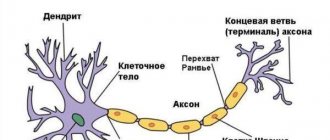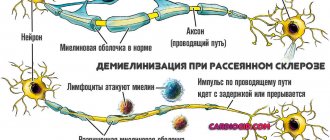0 .02.18
Every person involved in the modern rhythm of city life is subject to daily information, intellectual and emotional overload. Even the average office worker must deal with many tasks every day that require mental effort: making plans and reports at work, keeping in mind the many current tasks that need to be completed, communicating on social networks and watching the news, etc. Intellectual load is aggravated if a person studies, is engaged in scientific or leadership work. People who have been unable to cope with this kind of overload often turn to me for help.
Sign up for a consultation with a psychologist
Complete confidentiality
Professionalism
Individual analysis of non-standard situations
Choosing a place for consultation
All information about consultations with a psychologist can be found by clicking on the link.
Modern social stereotypes dictate the image of a successful person who works tirelessly, overcoming all obstacles, achieving career heights and financial well-being.
Fatigue is seen as a sign of “laziness” or “weakness.” However, this attitude to mental stress can lead to fatigue, nervous exhaustion and serious mental health problems. Therefore, you should familiarize yourself with simple and accessible ways to restore mental performance.
You may also be interested in the following information: Personal growth. Spiritual growth Individual psychological training Time management
Signs of mental fatigue
First, you need to learn to recognize alarming symptoms that indicate that your brain needs rest. Over the years of my professional activity, I have become convinced that the most common signs of intellectual fatigue are the following symptoms:
Increased susceptibility to various diseases
Frequent and long-term health disorders - colds, coughs, sinusitis - may indirectly indicate severe fatigue. Continuous intense mental activity exhausts the nervous system, leads to stress, which weakens the immune system and leads to a weakening of the body.
Feelings about past events
Obsessive memories of one’s own failures and concentration on negative memories can even provoke psychological depression. The occurrence of such conditions indicates the need to stop, calm down and put your mind and thoughts in order, or simply relax.
Neglect of natural needs (sleep, food, rest)
Deliberately skipping breakfast and lunch or reducing sleep time in order to complete some work on time also indicates the need to reduce mental load. The lack of a proper daily routine will aggravate the load on the body and negatively affect brain function.
Sleep disorder
Insomnia indicates overexcitation of the nervous system due to persistent heavy thoughts. Adequate sleep is necessary to restore the nervous system and productive intellectual activity.
Apathy
Indifference to the environment, indifference, apathy are signs that the brain cannot cope with intellectual and emotional stress. The lack of positive emotions from what used to be a pleasure - communicating with friends, an exciting hobby - speaks volumes about severe fatigue and overwork.
Overfatigue: symptoms, types and prevention in adults and children
Constant fatigue, apathy, and decreased performance are attributed to changing weather conditions, lack of sleep, and lack of vitamins.
Doctors say: chronic fatigue is a direct path to depression and decreased immunity. Let's look at overwork in detail: causes, symptoms and treatment. We'll tell you how not to neglect yourself and quickly regain strength. Overwork used to be understood as a condition associated with a prolonged lack of proper rest. Today, overwork is considered as the body’s reaction to constant or excessive irritants of a mental, mental, and physical nature.
The discrepancy between the severity and duration of work and rest time triggers this process. Unfavorable living conditions, constant stress, poor nutrition aggravate and perpetuate the condition.
Depending on the causes, physical, nervous, and mental fatigue are distinguished: the last two types are similar in manifestations and often accompany each other. It is possible that both physical and mental fatigue with mixed symptoms develop.
Fatigue is a physiological state of the body, and overwork is pathological!
Fatigue and overwork - causes, mechanism of development
Overfatigue develops with excessive activity, which is not compensated by proper rest. Circumstances that can lead to overwork include:
- Constant mental stress at work;
- Poor living conditions;
- Insufficient sleep;
- Low physical activity;
- Stress;
- Performing physical work that is disproportionate to capabilities;
Often the cause of overwork is the combined action of several factors that reinforce each other. For example, performing complex physical work that the body is able to withstand, together with an incorrect diet, leads to overwork.
Overfatigue can develop both after a strong single load and after prolonged loads of low strength.
The body reacts to the action of the stimulus by developing an adaptation syndrome, in which the work of the anterior part of the pituitary gland and the adrenal cortex is activated. A certain amount of stress hormones are released into the blood, helping the body adapt to a certain type of load.
If such stress is repeated many times, the organs that produce these hormones are depleted, which leads to disruption of the body's adaptation. In a person with overwork, the basal metabolism accelerates and impaired carbohydrate metabolism is observed.
This manifests itself in poor absorption and excretion of glucose. Blood sugar levels drop. The course of oxidative processes in the tissues of the body changes, which can manifest itself as a sharp decrease in the amount of ascorbic acid.
Fatigue
Overwork is preceded by fatigue, the symptoms of which are a signal for a person. Fatigue is a shift in the psychophysiological state of the body and leads to a temporary decrease in labor efficiency.
Fatigue from light loads, decreased performance, mood swings, longer recovery and rest times indicate fatigue.
It's time to stop doing the work, reduce the intensity, take a break.
Types of disorder in women and men
Types of fatigue:
Physical fatigue does not develop immediately. At first, the person feels a little tired and minor muscle pain. Most people do not pay attention to this and continue to lead a normal life.
After some time, the body becomes exhausted and characteristic symptoms appear:
- Constant fatigue that does not go away even after a long sleep;
- Painful feelings in the muscles intensify, bringing the patient significant discomfort;
- Sleep is disturbed - it is difficult for a person to fall asleep, he wakes up several times during the night;
- Feeling tired in the morning;
- Violation of emotions - a person becomes either too lethargic or too aggressive;
- Unpleasant feelings on the left side, in the region of the heart;
- Increased blood pressure, increased heart rate;
- Appetite is poor or absent altogether; a white coating forms on the tongue;
- Weight gradually decreases;
- Women experience menstrual irregularities.
Mental fatigue is often mistaken for ordinary fatigue. People try to rest and get enough sleep, believing that it will pass. Doctors say that in many cases, such measures will not be enough. To recover, a person must undergo a course of treatment.
Symptoms of mental fatigue include:
- Frequent causeless headaches;
- Feeling of fatigue that does not go away after sleep and rest;
- Instability of blood pressure;
- Pale skin, bags appear under the eyes;
- The eyes will be red;
- It's hard to fall asleep.
General information
Fatigue is the body's response to prolonged exposure to various types of irritants.
Fatigue is a special condition that is characterized by excessive sleepiness, decreased activity, irritability, lack of attention, and memory problems.
Some people are convinced: “in order to restore your strength and overcome overwork, it’s enough to get a good night’s sleep.” In reality, if there is already a serious problem, prolonged sleep will not improve the situation.
In fact, it is the inability to restore lost strength through good sleep that indicates the presence of overwork.
It is worth noting that previously this condition was diagnosed exclusively in adults. Today it is not uncommon among children, especially among those whose parents want to raise geniuses.
There are the following types of overwork:
- mental fatigue;
- physical fatigue;
- emotional;
- nervous.
This distribution is conditional, since in practice these types are often intertwined. They can appear sequentially, following each other, or they can appear simultaneously.
What diseases lead to overwork
There are certain diseases and conditions that have a long course and worsen the quality of life, causing fatigue and overwork. Such pathologies include:
- Respiratory diseases, bronchitis, asthma, pneumonia;
- Heart failure;
- Diseases of viral origin;
- Anxiety and depression;
- Poor nutrition;
- Bad dream.
There are diseases that begin with overwork.
These include:
- Inflammatory liver diseases;
- Tumors;
- Hormonal diseases, especially diabetes;
- Anemia;
- Decreased thyroid function;
- Obesity;
- Mononucleosis;
- Asthenia.
If you have one or more symptoms of fatigue, you should consult a general practitioner.
After a survey and examination, he will be able to say for sure whether the patient has a disease associated with fatigue, and, if necessary, refer him for a consultation to a more highly specialized specialist.
Disease prevention
After specialists identified this disease, an appropriate set of measures was developed to prevent it. A person can live with chronic fatigue syndrome for months or years. It occurs in people of different age groups from teenagers to adults.
To prevent this disease, you need to adhere to certain medical recommendations and use medications that enhance immunity. In a separate case, it is worth focusing on the prevention of disease in children.
The following reasons can lead to this disease:
- Incorrect work schedule for the child.
- Difficult school curriculum.
- Lots of homework.
- Constantly spending time watching TV or computer.
- Difficult relationships with other people.
As a rule, the disease chronic fatigue syndrome occurs in children aged 6-7 years, 11-14 years. The occurrence and development of this disease may be indicated by the following symptoms (strong manifestation in the afternoon):
Source: https://gb4miass74.ru/bolezni/pereutomlenie-eto.html
Available ways to restore brain function
First, you need to realize that mental fatigue exists, it makes every moment of your day difficult, and you cannot continue to live and work at the same rhythm, with the usual intensity. Following these recommendations can help a person who is experiencing mental and psychological fatigue.
Good night's sleep
Sleep is a vital need. Lack of sleep kills faster than lack of food. The most natural and simple way to eliminate mental fatigue is sleep. During sleep, information received during daytime mental activity is organized and filtered. In addition, brain cells are cleared of neurotoxins. The ability to concentrate and remember a large amount of information also depends on the quality and duration of sleep. It is believed that normal sleep duration is around 8 hours a night, but if you suffer from mental fatigue, you will need to increase your sleep duration, a good night's sleep of up to 10-12 hours is recommended.
Nutritious food
Pay attention to your diet. Find time in the morning for a normal, full breakfast, and not a “bird” one - a cup of coffee on the fly. Sit down and have a thorough breakfast. You will get energy for the whole day, and a feeling of moral satisfaction and confidence.
Meditation
Another way to combat mental fatigue is meditation. This option is not as simple as regular sleep and requires some preparation. However, with the help of meditative practices you can have a wonderful rest and relaxation. Regular meditation helps to consciously get rid of mental garbage, i.e. “spent” thoughts and experiences that prevent you from developing and moving forward in business.
Ecotherapy – contemplation of the beauty of nature or natural phenomena
Quiet contemplation of something beautiful and aesthetically pleasing also helps restore the functionality of a tired brain. You can look at works of art or admire the landscape, or just look at fire, water, clouds. Ecotherapy makes it possible to relax, redirect attention and get positive emotions from what you see. Looking at beautiful objects helps to distract from pressing problems and, in addition, develops imagination.
How to treat fatigue
From a medical point of view, general fatigue is not a disease. If you take action in time, it’s generally one continuous positive! The only effective way to restore loss of strength and apathy, as well as nullify prolonged bouts of laziness: optimizing the balance of work and rest.
Let's make a list of so-called hash tags that will allow you to coordinate your daily schedule.
#Sleep is health
A hash tag that should be regularly sent out across all social networks after ten in the evening. What, there is anti-tobacco advertising!? Eat! Lack of sleep, by the way, is much more harmful than nicotine and the carcinogens that accompany smoking. In our case, let's rephrase: good, deep and timely sleep means a healthy complexion, silky hair, the absence of bruises under the eyes, as well as long-term performance without coercion and attacks of procrastination.
Chronic lack of sleep is almost the norm of our time. Another problem is the dissonance between the lifestyle of a modern metropolis resident and the natural rhythms of the planet. Evolution for anthropoid primates has determined a strictly diurnal lifestyle! During the day, the biochemical processes of our body are rearranged many times. During the day, some hormones are produced, and with the onset of darkness, others. And all this is very clearly tied not just to the relationship: solving my pressing problems or sleeping and restoring strength, but also to the phases of sleep. A malfunction in the hormonal factory steadily pushes the entire body into the abyss of diseases caused by metabolic disorders.
#Slacker and enjoy life
Relax. Without a laptop! Without a tablet! Turn off your smartphone! Let's turn it off! Open your eyes wide and go out into the fresh air. It’s a little unusual to wander along the street during the day. The sun is shining or the rain is pouring. Or maybe the sky is so low, it’s frowning on something. You wander around carefree. You don’t touch anyone, but passers-by sometimes look askance. Anomaly! It’s okay, all good things come to an end quickly, but now we’re heading to the nearest park or into the forest, into nature. It’s even better to do physical labor or sports, but that’s later, but for now we’ll go for a walk and restore our mental balance.
#Healthy eating
Everyone knows that Rollons, chips, pizza, Big Macs, fried chicken, coffee syrup and other sweets do not grow on trees or in the grass, and do not run to watering holes. Perhaps this is all you need to know about fast food.
According to nutritionists, at least 65% of the food consumed by a person should be green and uncooked. The remaining 35% is dairy products, nuts and cereals. And only 5% of the dry residue is the mass fraction of meat and fish. But not the other way around.
# Internal energy balance
Achievable, for example, through meditation. In fact, this is a phase of active rest, reminiscent of a deep and peaceful sleep, only in reality. A large collection of meditations for all occasions can be found here. Alternatively: your favorite hobby, hanging out with friends, reading books or communicating with loved ones.
Characteristic manifestations
Common signs of any overwork include:
- frequent colds;
- memory impairment;
- change in body temperature;
- blood pressure problems;
- the appearance of apathy;
- constant feeling of fatigue;
- insomnia;
- decreased capacity;
- changes in emotional terms, in particular the appearance of irritability.
Signs of overfatigue in children include:
- irritability;
- tearfulness;
- excessively long daytime sleep;
- deterioration of appetite or its complete absence;
- increase or decrease in temperature;
- sleep problems;
- appearance of hysterics.
Manifestations of physical type
The physical type is characterized by gradual development. Initially, the person experiences slight fatigue and minimal soreness in the muscle area. Often these signs remain without due attention. The individual continues to lead an active lifestyle and goes in for sports. In the absence of timely recovery, the situation begins to worsen, marked by the following signs:
- body temperature rises up to 39 degrees;
- problems with sleep appear;
- there is pain in the chest;
- muscle pain becomes more intense;
- apathy appears;
- Appetite decreases, followed by body weight;
- characterized by the presence of tachycardia;
- blood pressure may increase.
Signs of mental fatigue
This type is often perceived by people as ordinary fatigue. At the same time, the person is convinced that he will be able to recover after rest. But in particularly advanced cases, special therapy cannot be avoided.
Among the early symptoms of mental fatigue are:
- pain in the head that occurs from time to time, for no apparent reason;
- overwhelming fatigue;
- pale complexion;
- persistent bruises appear under the eyes;
- changes in blood pressure;
- insomnia;
- redness of the sclera of the eyes.
When running, the following are attached:
- memory problems;
- nausea and even vomiting;
- nervousness;
- problems with concentration;
- severe irritability.
You should know that this type has three stages of development.
- Easy stage. There are signs of overwork such as problems falling asleep and inability to recover after a night's sleep.
- Second: problems arise with the digestive organs, appetite worsens, the color of the skin and eyes changes, men may experience a decrease in potency, and women may experience menstrual irregularities.
- The third is manifested by neurasthenia, excessive excitability and irritability, and an almost complete lack of night sleep.
Prevention
A number of interventions can help prevent mental exhaustion. These include:
- choose workplaces that prioritize well-being and work-life balance
- work with companies and colleagues who support each other
- don't do too many tasks at once
- practice a healthy lifestyle, including regular exercise and healthy eating
- develop strategies to deal with stress
Symptoms[edit | edit code ]
Lack of desire for sleep as such, decreased reaction, redness of the eyeball, swelling of the face, change in facial skin color, nausea, vomiting, fainting, discomfort and nervousness.
- Fatigue that does not stop after 5-7 hours of rest;
- Constant illness;
- Headache;
- Unsuccessful attempts to fall asleep (especially in the early hours);
- Irritability, decreased attention, memory, concentration ability, emotional shift;
- Hypertension.
- Stomach ache
Physical fatigue and mental exhaustion
Physical exhaustion is not the same as mental exhaustion. A person who is physically exhausted may feel mentally alert but physically tired. However, physical exhaustion can lead to mental exhaustion—especially for athletes with a rigorous training schedule.
For some, emotional symptoms manifest as physical symptoms, such as when anxiety causes the heart to beat faster. In addition, chronic mental exhaustion can cause physical health symptoms such as headaches or muscle pain.
People who feel physically tired should reduce their exercise. This is important because they will eventually begin to experience mental exhaustion on top of physical exhaustion.
Treatment
If you ignore the manifestations of overwork, this will lead to various complications, deterioration of your condition, and loss of performance. People often tend to either ignore the symptoms of the disorder in question or downplay their significance, which often leads to the occurrence of psychopathological abnormalities and neurological disorders: neurosis-like conditions, neurocirculatory dystonias, hysteria. In addition, this leads to an increased risk of various somatic pathologies, such as gastric and duodenal ulcers, hypertension, etc.
Frequently repeated overwork causes immune disorders and, as a consequence, the appearance of infectious diseases and chronic inflammation. For these and other reasons, therapeutic measures for the condition being analyzed must be timely and adequate.
The main difficulty in treating overfatigue lies in its diagnosis, since it is often necessary to make a diagnosis only on the basis of the individual’s complaints and medical history. Additional methods for recognizing the disease are laboratory tests and hardware diagnostics.
It should also be taken into account that the clinical picture described above may be characteristic of such disorders as anemia, infectious diseases, withdrawal syndrome, side effects of pharmacopoeial drugs, poisoning with toxic substances, endocrine disruptions, metabolic disorders, hypokalemia, strict diets, oncological pathologies, mental illnesses, systemic pathology.
First of all, the treatment strategy is aimed at eliminating any possible overload that may cause fatigue.
What Causes Nausea and Fatigue
The causes of nausea and fatigue begin with physical condition and lifestyle, ending with infections and neurology. The symptoms are the states of nausea themselves.
- Excessive alcohol consumption
- Excessive caffeine consumption
- Poor nutrition
- Medicines to keep you awake
- Too much physical activity or lack thereof
- Lack of sleep
- Anxiety
- Depression
- Stress
- West Nile fever
- Colon cancer
- Helicobacter pylori
- Amoebiasis
- Hepatitis
- E. coli infection
- Ebola virus
- Chlamydia
- Chronic pancreatitis
- Malaria
- Polio
- Leishmaniasis
- Infectious mononucleosis
- Worm infestation
- Dengue fever
- Hyperparathyroidism
- Hyperthyroidism
- Hypothyroidism
- Hypercalcemia
- Acute adrenal insufficiency
- Low blood sodium levels
- Addison's disease
- Migraine
- A brain tumor
- Shake
- Multiple sclerosis
- Brain damage
- Epilepsy
- Liver failure or cirrhosis
- Sea animal bites
- Flu
- Kidney disease
- Ischemic cardiomyopathy
- Food or seasonal allergies
- Cystic disease
- Premenstrual syndrome
- Hypertension
- Arteriolar nephrosclerosis
- Food poisoning
- Pregnancy
- Chronic pain
- Endometriosis
- Chronic kidney disease
- Pelvic inflammatory disease
- Gluten intolerance
- Bleeding in the esophagus
- Pancreatic cancer
- Peptic ulcer
- Diabetes
- Chronic fatigue syndrome
- Sleep apnea
- Inflammatory bowel disease
Causes
Since the analyzed disorder is the body’s response to physical stimuli, mental or mental stress, the discrepancy between periods of rest and activity, regardless of the type of activity, will certainly lead to exhaustion.
Conventionally, the factors that give rise to the analyzed phenomenon can be divided into physical and mental. The first include irrational distribution of physical activity, performing exercises that are beyond a person’s strength, constant intense physical labor, and ignoring recommendations regarding alternating periods of rest and activity.
The latter include stressors, excessive mental stress, and a violent emotional reaction to any event.
Mental stress is often dangerous due to a depressive mood; in addition, it can increase and ultimately transform into chronic exhaustion.
In addition, overwork can be a consequence of uncontrolled use of cold and antihistamine drugs, cough medicines, medications aimed at reducing blood pressure, relieving motion sickness syndrome, muscle relaxants, contraceptives or sleeping pills.
Also, a long-term illness worsens the quality of life, reduces performance, weakens the body, which reduces the body’s endurance, exhausts it and leads to rapid fatigue.
There are a number of ailments that give rise to the described condition:
– pathologies of the respiratory system (asthma, bronchitis, emphysema);
– tumor processes of various localizations;
– lowering sugar levels;
In the occurrence of overwork, illnesses of viral etiology, especially long-term ones, for example, papillomas, plantar warts, are considered a serious risk factor.










